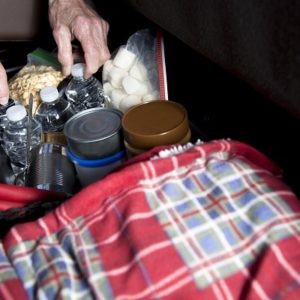Protecting Seniors During Natural Disasters
 Natural disasters are devastating. They cost lives. They cost communities. They cost money. But they are particularly deadly for seniors.
Natural disasters are devastating. They cost lives. They cost communities. They cost money. But they are particularly deadly for seniors.
Gustavo E. Flores, M.D., a member of the American Heart Association’s (AHA) Emergency Cardiovascular Care committee, explains, “During and after a storm, many people experience extreme stress and trauma, which research shows can lead to an increase in cardiovascular disease risk. The impact can be more intense for heart disease and stroke patients.”
He continues, “Additionally, in the aftermath of a significant natural disaster, property destruction and evacuations affect many basic support resources. This can make it challenging to see a health care professional for routine check-ups or to refill or adjust medications, especially for more vulnerable populations.”
And seniors make up a large portion of “vulnerable populations.” Nearly 1 in 5 aged 65 and older have heart disease. Many older adults live in areas most impacted by climate change where high heat, flooding, hurricanes, fire and other disasters are becoming more frequent. Older people have a higher risk of death from disasters and the long-term effects often undermine their economic security, physical and mental health, as well as overall wellbeing.
The good news is there are ways to protect the health of seniors during a natural disaster. Here are a few tips.
- Have a plan. Perhaps the best first step is to make a plan in case a natural disaster strikes. Creating a sharable guide that incudes communication strategies and specific household needs ensures that everyone will know what to do. Such pre-planning can alleviate some of the harmful stress, anxiety, and fear which naturally occurs during and after disasters. Instructions on how to make a plan can be found here. Do not forget to include the seniors when talking about it!
- Ask about an emergency supply of prescriptions. Doctors and pharmacists can advise on if and how to build an emergency supply of both prescription and over the counter (OTC) drugs. Remember: if an emergency supply is created, medicines will need to be rotated out to keep them safe and effective.
- Know medical histories and medicines. Keep a written down up-to-date list of any medical conditions, allergies, and medications (OTC and prescriptions). Also include information about which pharmacy is used, when the medication is taken, and what amount (dosage) is needed. Put a copy in the evacuation “go kit” so you do not have to look for it when time is short.
- Carry medications in a plastic bag. Should evacuation become necessary, even for a short time, use a resealable plastic bag to transport medicines. It’s important to keep the medications in their original container but placing the container in a closed plastic bag will help keep medication dry. If medicines need to stay cool, a cooler with ice packs will be required.
- Seek refills or replacements as soon as possible. If medicine gets damaged, lost, or runs out, look for an open, local pharmacy to refill or replace. Many states allow up to a 30-day supply of medication in the case of a natural disaster or other emergency. For more information on specific state emergency prescription refill laws click here.
- Learn CPR. When performed correctly, cardiopulmonary resuscitation (CPR) can double or triple a person’s chance of survival. This simple one-minute AHA video here demonstrates how to provide Hands Only CPR.
Everyone’s health is threatened by a natural disaster. For seniors, the risk is greater and the outcomes more deadly. September is National Preparedness Month and the perfect time to plan for protecting people of all ages.
Sources: Illuminage with information from FEMA, ready.gov, AARP, AHA, the CDC, and WellRX.
![Peace Aging Care [logo]](https://www.peaceagingcare.com/wp-content/uploads/sites/243/2017/05/peacelogo-new3.png)